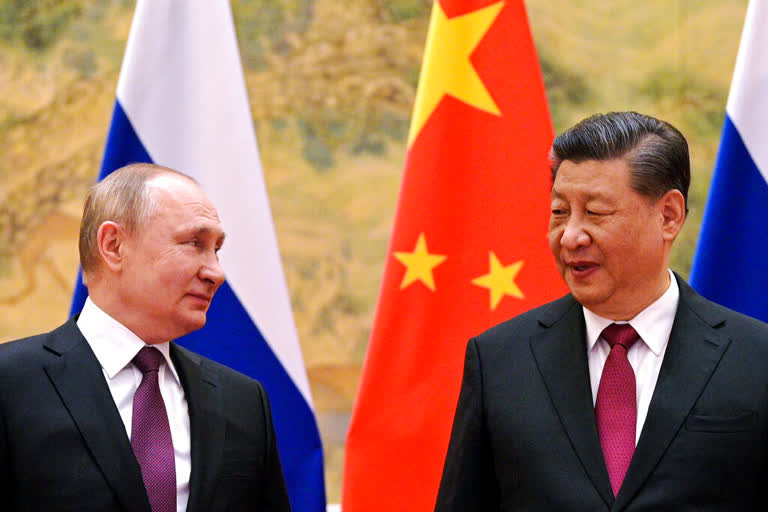New Delhi: After having given a good account of the Ukraine conflict by striking a fine balance and not taking firm sides thereby underlining its strategic autonomy, the South Block mandarins of India’s diplomatic establishment could face a challenging time in the near future if US’ efforts to rake up the Taiwan issue bears fruition. If two fronts open up at the same time - in Ukraine and in Taiwan - India’s space to manoeuvre would become very constricted, forcing it to abandon its present position of being on friendly terms with both Russia and the US.
The possibility of a US-Russia confrontation is also becoming stronger with top focus being accorded in the West to the reported “war crimes” being committed by Russia in Ukraine and especially after the Russian navy ship ‘Moskva’ was sunk off the Ukraine coast in the Black Sea on Thursday after being blasted with missiles and the West’s ongoing and determined effort to push in weapons supplies into Ukraine. With the emergence of a Russia-China bloc, India’s position of being close to Russia would be untenable because of very close ties between Russia and China which is already taking the shape of an economic and strategic alliance.
With India and China already staging an ongoing standoff across eastern Ladakh and elsewhere along the Line of Actual Control (LAC) leading to unprecedented mobilization and deployment of military men and equipment over the last two years, a Russian-Chinese bonhomie would also make Russian mediation invalid given the current air of hostility between India and China. It would also invalidate the possibility of Russia playing mediator to India and China.
On the same day that the ‘Moskva’ sank, a delegation of six US congressmen cutting across party lines and led by Bob Menendez, chairperson of the US Senate Foreign Relations Committee, landed at the Taipei airport in an unannounced visit. On Friday, the group, which also included influential Republican Lindsey Graham, met Taiwan President Tsai Ing-wen in the latter’s office. What made waves was what Graham said after meeting President Tsai: “We are going to start making China pay a greater price for what they are doing all over the world. The support for (Russian President Vladimir) Putin must come with a price.”
“To abandon Taiwan would be to abandon democracy and freedom. It would be to abandon free trade. It would reward the worst of humanity. We are here today to show our support for Taiwan.” Naturally, the US congressional visit drew a strong response from China with the Chinese military resorting to a major war exercise in the seas around Taiwan with warships, fighter aircraft and bombers in a bid to warn the US to stay off.
Calling the US visit “sneaky”, Chinese defence ministry spokesman Wu Qian said in a statement on Friday that the visit “seriously violated” the US’ one-China principle. While Wu said the military exercise was to uphold China’s sovereignty, China’s foreign ministry spokesperson Zhao Lijian said the exercise was a reaction to the US delegation’s visit to Taiwan.



